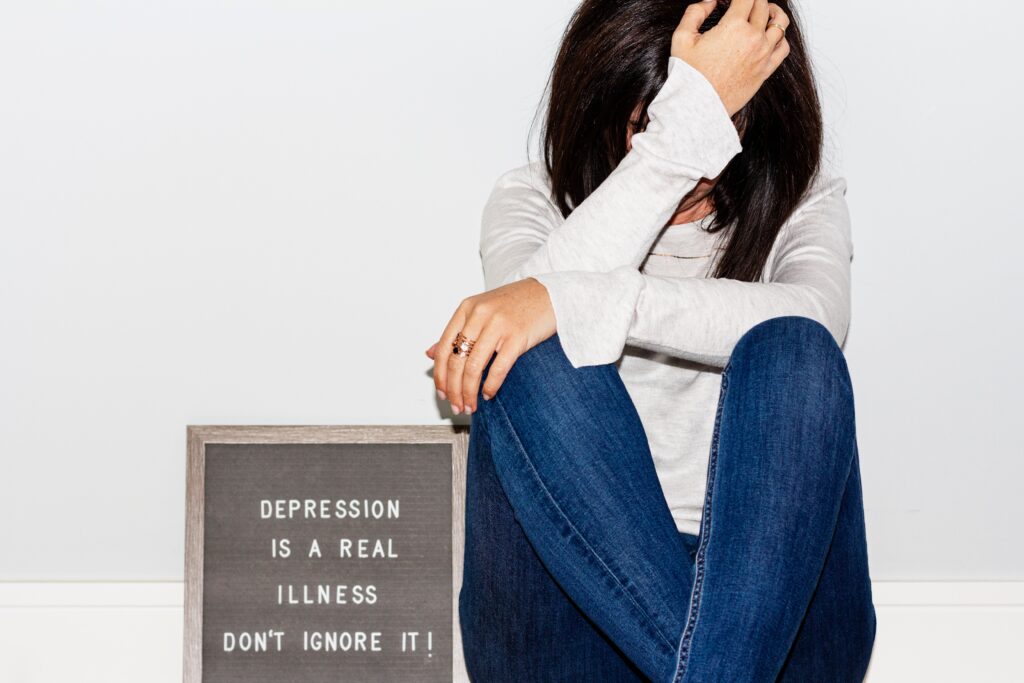
Depression can feel like being trapped in a dark, heavy fog that clouds everything in your life. The term “funk” perfectly captures this state—a persistent low mood that’s difficult to shake off. If you’re struggling with a depression funk, know that you’re not alone. Millions of Americans face similar challenges every day, and there are proven ways to find your way back to brighter days.
Understanding the Depression Funk
A depression funk isn’t just feeling sad for a day or two. It’s a persistent state where you might experience:
- Lack of energy and motivation
- Difficulty finding joy in activities you once loved
- Changes in sleep patterns and appetite
- Feeling disconnected from others
- A sense of hopelessness about the future
This state can develop gradually or hit suddenly, triggered by life events, seasonal changes, stress, or sometimes with no obvious cause at all.
Recognizing You’re in a Funk
The first step toward healing is awareness. Many Americans push through their depression funks, believing they should just “snap out of it” or “try harder.” This approach often deepens the funk rather than alleviating it.
Signs that you might be experiencing a depression funk include:
- Tasks that once seemed simple now feel overwhelming
- You’re isolating yourself from friends and family
- Your self-care routines have fallen by the wayside
- You find yourself thinking negatively about most situations
- Physical symptoms like headaches, digestive issues, or unexplained pain
Professional Support: When and How to Seek Help
For many Americans, stigma around mental health prevents them from seeking the help they need. However, reaching out to a mental health professional is often the most effective way to address a persistent depression funk.
Consider speaking with a therapist or counselor if:
- Your funk has lasted more than two weeks
- It’s interfering with your ability to work, maintain relationships, or enjoy life
- You’re experiencing thoughts of self-harm or suicide
With telehealth options now widely available across the US, accessing therapy is more convenient than ever. Many insurance plans now cover mental health services, and community mental health centers offer sliding scale fees for those without coverage.
Daily Practices to Lift Your Mood
While professional help is valuable, there are also many daily practices that can help lift you out of a depression funk:
1. Move Your Body
Exercise releases endorphins, natural mood elevators that can provide immediate relief from depression symptoms. You don’t need an intense workout—even a 10-minute walk around your neighborhood can make a difference.
2. Connect with Nature
Americans are spending less time outdoors than ever before, but nature exposure is a powerful antidepressant. Try to spend at least 20 minutes outside each day, even if it’s just sitting in your backyard or a nearby park.
3. Establish Sleep Hygiene
Poor sleep can both cause and worsen depression. Create a consistent sleep schedule, limit screen time before bed, and make your bedroom a comfortable, dark, and quiet environment for restorative sleep.
4. Nourish Your Body
The standard American diet, high in processed foods and sugar, can contribute to mood disorders. Focus on whole foods, particularly those rich in omega-3 fatty acids (like salmon and walnuts), antioxidants (colorful fruits and vegetables), and complex carbohydrates (whole grains).
5. Practice Mindfulness
Mindfulness brings your attention to the present moment, interrupting the cycle of negative thoughts that often characterizes depression. Even five minutes of daily meditation can begin to shift your mental patterns.
Breaking the Isolation Cycle
Depression often leads to isolation, which then worsens depression—a difficult cycle to break. Despite America’s emphasis on independence, human connection is essential for mental health.
To reconnect:
- Start small—text a friend or family member you trust
- Be honest about what you’re experiencing
- Join a support group (in-person or online)
- Volunteer for a cause you care about
- Participate in community events or classes
Creating a Depression-Resistant Lifestyle
Americans often live at a pace that doesn’t allow for adequate self-care. Building resilience against depression involves creating a lifestyle that supports mental health:
Establish Boundaries
Learn to say no to commitments that deplete your energy without adding value to your life.
Cultivate Gratitude
Each day, identify three things you’re grateful for. This practice can gradually shift your focus from what’s wrong to what’s right in your life.
Develop Creative Outlets
Creative expression provides an emotional release and sense of accomplishment. Whether it’s writing, drawing, cooking, or any other creative pursuit, make time for activities that allow you to express yourself.
Limit Media Consumption
American media often focuses on negative news, which can worsen depression. Set boundaries around how much news and social media you consume.
When the Funk Persists: Additional Approaches
If you’ve tried self-help strategies and perhaps even therapy, but still feel stuck in a depression funk, don’t lose hope. Consider:
Medication Options
For many Americans, antidepressant medications provide relief from persistent depression. Speak with a healthcare provider about whether this option might be right for you.
Alternative Therapies
Approaches like acupuncture, light therapy (especially for seasonal depression), massage, and yoga have shown promise in treating depression symptoms.
Lifestyle Reassessment
Sometimes a depression funk signals that major life changes are needed. Consider whether your current job, relationship, or living situation aligns with your values and needs.
Supporting Someone in a Depression Funk
If someone you care about is experiencing depression, your support can make a significant difference. Offer:
- Patience and understanding without judgment
- Practical help with daily tasks
- Gentle encouragement to seek professional help if needed
- Regular check-ins and invitations, even if they often decline
Hope for the Future
The American spirit is characterized by resilience and optimism, qualities that can seem distant when you’re in a depression funk. Remember that depression is not a permanent state, even when it feels that way.
Each small step you take—reaching out to a friend, taking a walk, scheduling a therapy appointment—brings you closer to emerging from your funk. The journey isn’t always linear, with good days and difficult days along the way, but with persistence and support, you can find your way back to feeling like yourself again.
Depression funks are a common part of the human experience, not a personal failing. By acknowledging your struggle, seeking appropriate help, and implementing self-care strategies, you’re taking control of your mental health and building a foundation for lasting emotional wellbeing.
Unlock Inner Peace & Overcome Depression with Health-Generation’s Mindset Programs
Struggling with depression and looking for a proven way to regain control of your life? The “Mental Health: Overcoming Depression” program by Health-Generation offers expert-led mental coaching and hypnosis techniques to help you break free from negative cycles, activate self-healing powers, and experience lasting happiness.
💡 Why Choose This Program?
✅ Scientifically Optimized – Designed for maximum transformation
✅ Proven Sales Funnel – High customer satisfaction & conversions
✅ Lifetime Access – Watch and learn at your own pace
Join now and take the first step towards a healthier, happier mindset!


